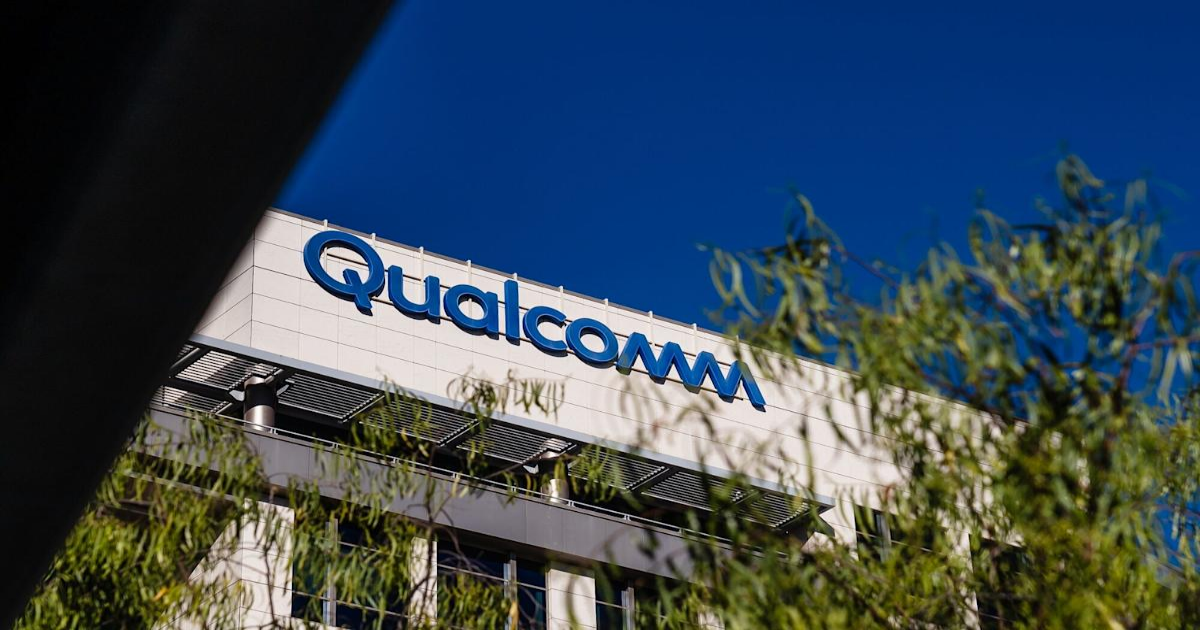(Bloomberg) — Qualcomm Inc., the biggest maker of chips that run smartphones, slid in late trading after giving a tepid revenue forecast, underscoring concerns that tariffs will hurt demand for its products.
Most Read from Bloomberg
Revenue in the period ending in June will be $9.9 billion to $10.7 billion, the company said Wednesday in a statement. The midpoint of that range was slightly below the average analyst estimate of $10.33 billion.
The outlook renewed fears that the market for smartphones will suffer from a looming trade war. Qualcomm is seen as highly vulnerable to the fallout from tariffs threatened by the US and China. The latter country is the biggest market for Qualcomm’s chips, and local phone makers are many of its top customers.
Intel Corp. and others have given cautious outlooks — with some even warning that the economy may be headed for a recession.
“As we navigate the current macroeconomic and trade environment, we remain focused on the critical factors we can control — our leading technology road map, best-in-class product portfolio, strong customer relationships and operational efficiencies,” Qualcomm Chief Executive Officer Cristiano Amon said in the statement.
The shares fell more than 5% in extended trading following the announcement. They had slid 3.4% this year, though that’s a better performance than the 15% decline by the Philadelphia Stock Exchange Semiconductor Index.
Qualcomm hasn’t yet experienced any material impact from tariffs, and its Chinese customers are continuing to design products based on its chips, Amon said on a conference call with analysts. While there’s been no direct effect, the indirect fallout from tariffs can’t currently be predicted, Chief Financial Officer Akash Palkhiwala said.
Third-quarter earnings will be about $2.70 a share, excluding some items, Qualcomm said. That compares with a Wall Street projection of $2.64. The San Diego-based company has projected that the smartphone market will grow by a percentage in the low single digits this year.
In the fiscal second quarter, which ended on March 30, profit was $2.85 a share, excluding some items. Revenue rose 17% to $11 billion. Analysts had estimated earnings of $2.81 a share and sales of $10.6 billion.
Phone-related sales were $6.93 billion in the period, compared with the average projection of $6.8 billion. Revenue of chips used in vehicles was $959 million. Connected-device semiconductor sales were $1.58 billion.
Qualcomm supplies processors and modems that are the main components of the world’s most advanced smartphones. While that market is no longer growing as quickly as it once did, the company’s products are widely used in high-end Android phones.
The chipmaker also collects fees calculated as a percentage of the cost of a handset regardless of whether the phone maker uses its chips. Qualcomm won those rights in intellectual property lawsuits around the world, establishing that it can charge royalties on its patents that cover the basic way that phones connect with networks.
Under Amon, Qualcomm has been trying to lessen its reliance on the phone market with a push into new areas. That includes selling chips to automakers and offering new processors that it says are the best foundation for new artificial intelligence laptops.
Most Read from Bloomberg Businessweek
©2025 Bloomberg L.P.
